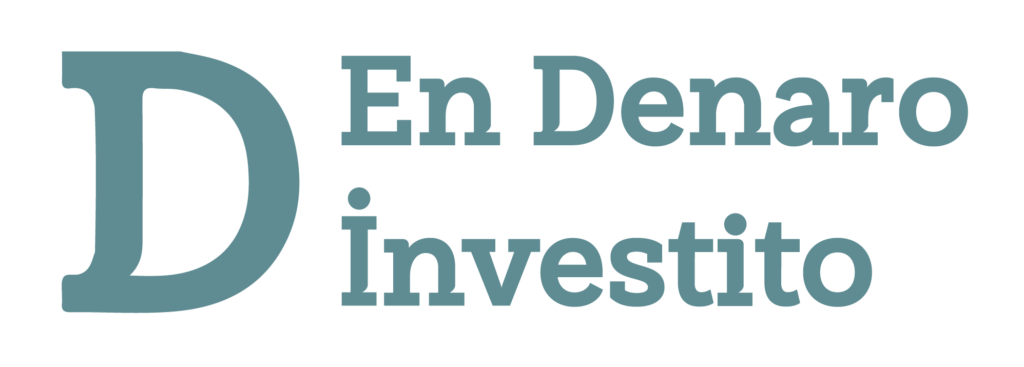The bank loan process is a fundamental tool in the financial management of individuals and companies. Understanding how it works can open doors to making dreams come true, such as buying your own home, expanding a business or taking a planned trip.
In this article, we will demystify each step of this process, from request to approval, in addition to addressing the factors that influence the bank’s decision. With clear and objective information, we seek to equip you with the knowledge necessary to make more conscious and safe financial choices. If you’ve ever thought about applying for a loan, keep reading and discover everything you need to know to navigate this path with confidence. below will be articles from banks that provide the loans mentioned
Types of Loans Available from Banks:
Personal Loan
A personal loan is a flexible credit option where the borrower is not required to justify the use of the funds. It can be used for various personal needs, such as financing travel, paying off debts, covering medical expenses, making important purchases, or even renovating a home. The main advantage of this type of credit is its versatility, as the money can be spent on any purpose without the need for proof of expenditure, making it a popular choice for those who need quick resources with minimal bureaucracy.
- Amount: It can range from $100 to $10,000 or more.
- Interest Rates: The rates can vary between 0.40% to 1.60% per month.
- Repayment Period: The repayment period can range from 6 to 48 months.
Secured Loan (Payroll Loan)
A secured loan, also known as a payroll loan, involves the repayment of loan installments being automatically deducted from the borrower’s salary or pension. This reduces the risk for the bank, which often results in lower interest rates. It is commonly used by individuals who need fast credit with more affordable terms, such as those looking to pay off high-interest debts or fund personal projects like purchasing furniture, going on vacation, or furthering their education.
- Amount: It can be requested from $200 up to 30% of the monthly income or benefit amount.
- Interest Rates: The interest rates are lower, ranging from 0.30% to 0.70% per month.
- Repayment Period: The repayment period can range from 6 months to 72 months.
banks that provide the aforementioned loans:
- Chase Loans Variety: Explore Your Options
- Bank of America: Offers Personal Loans with Ease
- Avant Personal Loans: Ideal for Everyday Needs
- Applying for a SoFi Personal Loan: Easy Steps
Vehicle Loan
A vehicle loan is designed to finance the purchase of new or used cars, motorcycles, or trucks, with the purchased vehicle itself serving as collateral. It is ideal for individuals who want to acquire a vehicle but do not have the full amount upfront. The bank provides the required amount to complete the purchase, and the borrower repays the loan in monthly installments. The advantage of this type of loan is that since the vehicle is used as collateral, it typically comes with lower interest rates. This loan is a good option for those looking to upgrade or replace their vehicle without having to save up the entire amount in advance.
- Amount: The requested amount can cover up to 100% of the vehicle’s price, depending on the bank and credit analysis. It can range from $500 to $20,000 or more.
- Interest Rates: Interest rates vary from 0.30% to 0.70% per month.
- Repayment Period: The repayment period can range from 12 to 60 months.
Home Improvement or Construction Loan
A home improvement or construction loan is designed for individuals who wish to make improvements, expansions, or constructions on a residential or commercial property. It can be used for small or large projects such as internal renovations, building a property from scratch, or expanding existing spaces. Some forms of this loan allow the property itself to be used as collateral, which may reduce interest rates. This loan offers a good opportunity for those looking to enhance their home or even increase the property’s value without compromising their financial stability. Do you want to own your dream home? Learn how to apply for your mortgage loan with a simple guide!
- Amount: It can be requested from $200 to amounts exceeding $20,000, depending on the need and the property’s value.
- Interest Rates: Interest rates vary from 0.30% to 0.60% per month.
- Repayment Period: The repayment period can range from 12 to 120 months.
Educational Loan
An educational loan is a credit option specifically designed to finance undergraduate, postgraduate, or professional development courses. It is intended for individuals who wish to invest in their education but lack the necessary funds at the moment. This loan can cover all or part of tuition fees, books, and materials, depending on the financial institution. One of the advantages of some educational loans is that repayments can be deferred until after the completion of the course, allowing the student to focus on their studies while the debt is paid off later.
- Amount: It can cover up to 100% of the course tuition fees, ranging from $200 to $10,000, depending on the institution.
- Interest Rates: Interest rates range from 0.30% to 0.80% per month.
- Repayment Period: The repayment period can range from 12 to 72 months.
Documentation Required to Apply for a Bank Loan:
When applying for a bank loan, the required documentation varies by institution and loan type. However, some common documents are typically requested.
A valid government-issued ID, such as a driver’s license, passport, or state-issued ID card, is necessary to confirm your identity and nationality. Proof of residence, like a utility bill, lease agreement, or mortgage statement, is also required to verify your address.
Proof of income is crucial to demonstrate your ability to repay the loan. This may include recent pay stubs, bank statements showing regular deposits, or tax returns. Self-employed individuals might need to provide W-2 or 1099 forms or an income verification letter from a client or employer.
Additional financial details may be requested, such as information on dependents, outstanding debts, or monthly obligations like alimony or child support. A credit report is often reviewed, as a good credit score can improve your chances of approval and secure better terms.
Depending on the loan type, you may also need to provide a Social Security Number (SSN), Individual Taxpayer Identification Number (ITIN), business documentation for self-employed applicants, or collateral details for secured loans.
Credit Evaluation: What Banks Consider
Credit evaluation is a fundamental process used by banks and financial institutions to determine a borrower’s ability to meet their financial obligations. This process involves a thorough analysis of several factors that influence the decision to approve a loan or credit card application.
- Credit History: Banks examine the consumer’s credit history, which includes information about missed payments, outstanding debts, and overall credit usage. This helps create a picture of the individual’s financial responsibility.
- Income Assessment: A solid justification of financial stability is essential, which can be proven through pay stubs and tax returns. Additionally, the ratio between income and monthly expenses is a key factor. This allows banks to assess whether the individual has enough margin to cover a new financial commitment.
- Asset Composition: Owning assets, such as real estate or vehicles, can add value to the credit evaluation process, as these assets may serve as collateral in case of default. Previous experience with credit also plays a significant role; consumers who have managed loans or credit cards well in the past are typically viewed more favorably.
- Recent Credit Inquiries: The number of recent credit applications is also considered. An excessive number of inquiries may raise concerns about the borrower’s financial health, indicating potential difficulty in obtaining credit.
Interest Rates and Other Fees on Bank Loans:
Interest rates and additional fees are critical factors in bank loans that borrowers must understand before committing. The interest rate, typically expressed annually, represents the loan’s cost and varies based on factors like credit profile, economic policy, and loan type. During periods of high inflation or instability, rates tend to rise, affecting repayment ability.
Beyond interest, loans often include fees such as administrative costs, mandatory insurance, or credit opening charges. Borrowers should carefully review contracts to understand all terms, as low advertised rates may exclude these additional costs.
The type of interest rate—fixed or variable—is another key consideration. Fixed rates remain constant, while variable rates adjust based on market indices, potentially increasing payments. Choosing the right option requires careful financial planning and preparation for possible fluctuations. Comparing institutions and consulting experts can help identify the most favorable loan conditions.
Alternatives to Traditional Bank Loans:
Nowadays, many people seek alternatives to traditional bank loans due to high interest rates or the bureaucratic processes involved. Here are some alternatives that have gained attention:
Peer-to-Peer Lending
- One option that has gained prominence is peer-to-peer lending. In this model, online platforms connect lenders and borrowers directly, often offering more favorable conditions and lower interest rates. This solution allows those in need of money to find investors willing to lend, creating a more flexible and personalized negotiation environment. Want to learn more about Peer-to-Peer Lending and how it can benefit you? Explore the advantages and discover how this flexible lending model can help you secure a loan with better conditions today!
Credit Unions
- Credit unions operate similarly to banks but are managed by their own members, who are also the customers. By becoming members, individuals can access loans with more advantageous terms. Credit unions typically prioritize personal relationships and individual case analysis, resulting in fairer and more accessible proposals. Additionally, the profits generated by the credit union are reinvested in the community, contributing to local development.
Secured Loans
- For those who own assets or property, a secured loan can be a viable solution. In this model, the borrower offers an asset as collateral, such as a house or vehicle, allowing the lender to offer a lower interest rate compared to traditional loans. This alternative is particularly useful for those who need significant amounts of money but struggle to prove income, as the collateral reduces the risk for the lender.
Personal Financing Apps
- Lastly, personal financing apps have become increasingly popular. These digital platforms offer the possibility of applying for a loan quickly and easily, usually with minimal requirements. However, it’s important to be aware of the fees and conditions, as some options may be misleading. With so many alternatives available, it’s essential to do thorough research and choose the one that best fits your financial situation, avoiding unpleasant surprises in the future. Need help applying for a loan? Consult an expert from the National Association of Personal Financial Advisors (NAPFA) and make safer financial decisions!
Discover these contents that may interest you:
- Personal Loan or Credit Card? Learn Which to Choose for Your Finances
- Loan Refinancing: Understand When It Makes Sense for Your Pocket
- What are the required documents for bank loans?
Avoiding Pitfalls When Taking Out a Bank Loan:
Taking out a bank loan can be an effective solution for those in need of financial support, whether to fund a personal project, buy a good, or consolidate debts. However, it is crucial to approach this decision with caution to avoid potential long-term problems. The first step is always to thoroughly assess your financial situation. Understanding your repayment capacity, the exact amount you need, and how the loan will impact your monthly budget are key factors in avoiding unpleasant surprises.
Moreover, comparing offers from different financial institutions is essential. Interest rates and repayment terms can vary significantly from one bank to another. By researching and negotiating, you may find more advantageous options that better suit your financial profile. It’s also important to watch for hidden details such as additional fees, hidden charges, and the flexibility of terms and payments. These elements often determine whether the loan will truly be helpful or become a burden.
Finally, carefully reading the contract is critical. Many people sign documents without fully understanding them, leading to misunderstandings about the loan terms. Make sure all information is clear and that you are comfortable with the conditions. If necessary, seek assistance from a financial advisor or someone with experience in this area, as this can help avoid costly mistakes in the future. Keeping focused on your financial goals and using the loan responsibly will help ensure it becomes a tool for progress rather than a financial obstacle.
Conclusion:
In summary, the bank loan process involves a series of essential steps, from analyzing the applicant’s financial profile to defining payment conditions, interest rates and deadlines. Understanding each of these phases, such as credit assessment, choosing the type of loan and carefully reading the contract, is essential to ensure a conscious financial decision and avoid future problems. By properly preparing, comparing offers and understanding the implications of a loan, you can make a choice that meets your needs without compromising your financial health.













